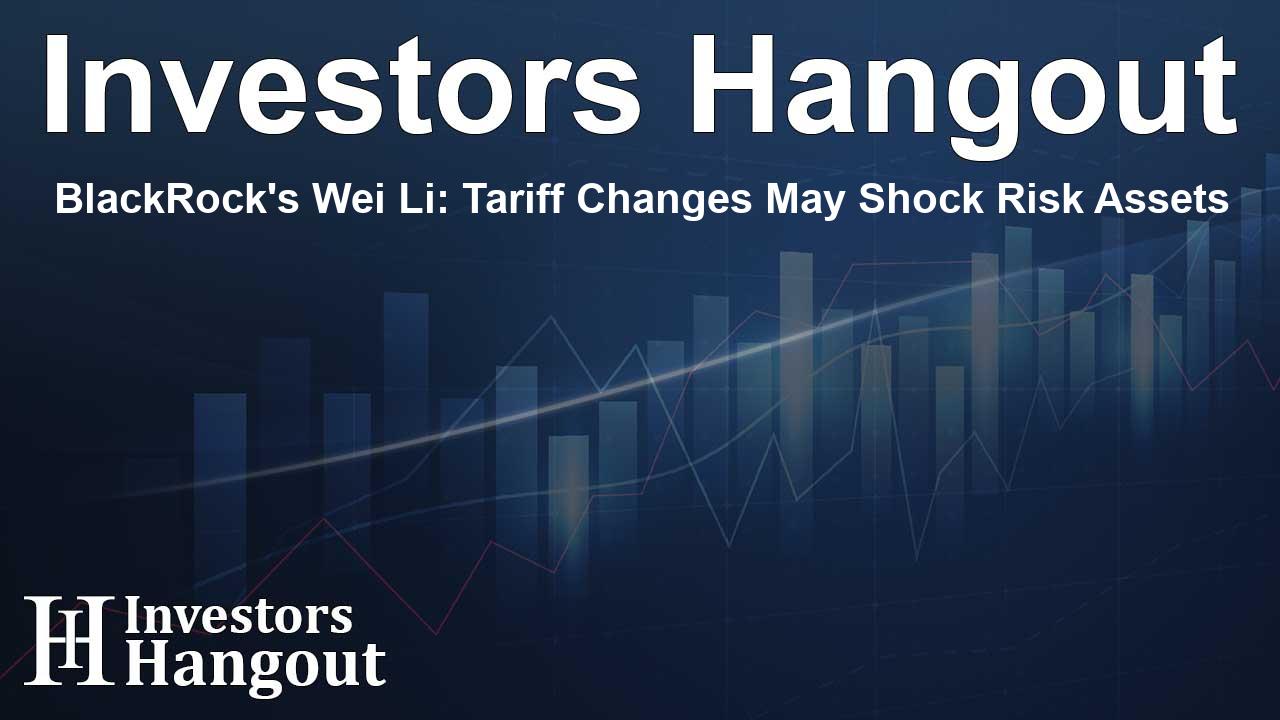BlackRock's Wei Li: Tariff Changes May Shock Risk Assets

Market Sensitivity to Tariff Changes
Recent insights from Wei Li, the global chief investment strategist at BlackRock (NYSE: BLK), indicate that market dynamics could dramatically shift with any change in tariff narratives. During a discussion on Bloomberg TV, Li expressed concerns about the potential impact on risk assets—an area that includes equities and credit options, which may experience a significant and sudden response.
Current Market Outlook
Li characterized BlackRock's current approach as "risk-on," which suggests a willingness to embrace more risk, yet she remained cautious. The strategy hinges on ongoing negotiations regarding tariffs, reinforcing the idea that a sudden disruption could cause a serious wake-up call for the markets.
Implications of Policy Divergence
A notable observation from Li is the growing divergence between the U.S. and European economies. This separation has been highlighted through recent assessments like the European purchasing managers’ indexes (PMIs), revealing signs of economic decoupling. In her view, this divergence could lead to increased support for European government bonds, particularly as she anticipates that the European Central Bank may adopt a more aggressive easing strategy compared to the Federal Reserve.
Selectivity in Investable Opportunities
In this volatile atmosphere, selectivity in investment choices is paramount. Li pointed out that there are promising avenues within sectors that have substantial U.S. manufacturing operations. These sectors are likely to withstand the potential bruises from headline risk surrounding tariffs, thus presenting a relatively safer investment landscape.
Navigating Political Uncertainty
Li encourages investors to focus on these resilient opportunities while navigating through an economy affected by slower growth rates and ongoing political uncertainties. She emphasizes that thorough research and focus on fundamental strengths will be vital for success in this evolving market environment.
Frequently Asked Questions
What does Wei Li mean by "risk-on"?
Wei Li refers to a market approach that takes on more risk, indicating confidence in potential gains, although it can shift quickly based on changing economic conditions.
How could tariffs affect risk assets?
Changes in tariff policies could disrupt market expectations, leading to sharp reactions in risk assets such as equities and credit, potentially causing volatility.
What is the current stance of BlackRock?
BlackRock's current investment stance is classified as "risk-on," but they remain vigilant about the economic landscape and its impact on their strategies.
Why does Li prefer European government bonds?
Li sees a divergence in economic policies between the U.S. and Europe, suggesting that European government bonds may become more attractive as the ECB is expected to ease policies more than the Federal Reserve.
What should investors focus on now?
Li advises investors to seek out sectors and companies with robust U.S. manufacturing operations, as they are likely to be less impacted by tariff-related headlines.
About Investors Hangout
Investors Hangout is a leading online stock forum for financial discussion and learning, offering a wide range of free tools and resources. It draws in traders of all levels, who exchange market knowledge, investigate trading tactics, and keep an eye on industry developments in real time. Featuring financial articles, stock message boards, quotes, charts, company profiles, and live news updates. Through cooperative learning and a wealth of informational resources, it helps users from novices creating their first portfolios to experts honing their techniques. Join Investors Hangout today: https://investorshangout.com/
Disclaimer: The content of this article is solely for general informational purposes only; it does not represent legal, financial, or investment advice. Investors Hangout does not offer financial advice; the author is not a licensed financial advisor. Consult a qualified advisor before making any financial or investment decisions based on this article. The author's interpretation of publicly available data shapes the opinions presented here; as a result, they should not be taken as advice to purchase, sell, or hold any securities mentioned or any other investments. The author does not guarantee the accuracy, completeness, or timeliness of any material, providing it "as is." Information and market conditions may change; past performance is not indicative of future outcomes. If any of the material offered here is inaccurate, please contact us for corrections.